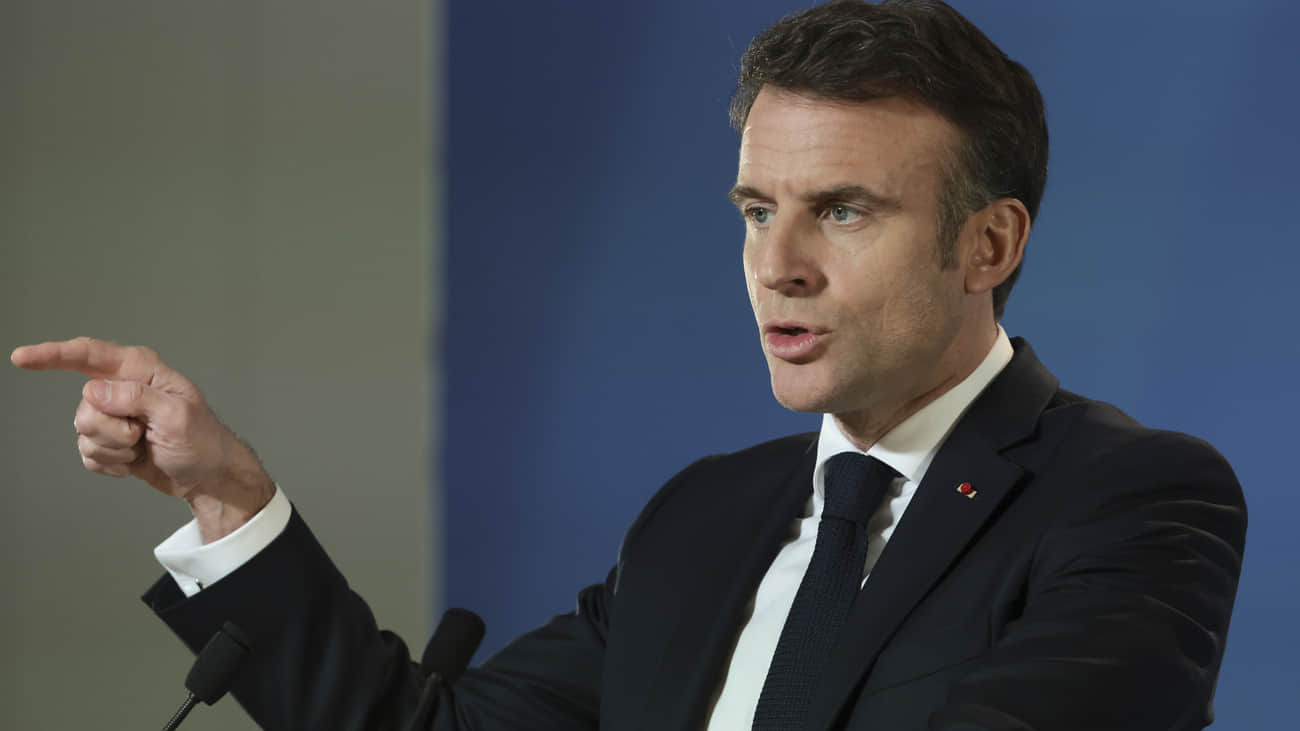GOP senators defy Trump by advancing foreign aid bill
The vote was a decisive 67-27.


Donald Trump spent the weekend telling senators they should not pass more unconditional U.S. foreign aid. More than a dozen Republicans ignored him Sunday, moving forward on a bill to send $95 billion in aid to Ukraine, Israel and Taiwan.
The Senate voted 67-27 to advance the foreign aid supplemental spending bill that doesn’t include border provisions, moving it another step closer to passage. That still isn’t guaranteed, as leaders haven’t yet reached an agreement on GOP-demanded border amendments.
The package faces some resistance from Republicans, who say they won't back further aid to Ukraine unless it’s amended to include border policy changes. Last week, Republicans blocked a bipartisan border-foreign aid package that was negotiated for months, arguing it didn’t go far enough to limit migration. Consideration of border amendments would require unanimous consent from senators, which is still elusive.
“From this point forward, are you listening U.S. Senate (?),” Trump wrote on Truth Social. “No money in the form of foreign aid should be given to any country unless it is done as a loan, not just a giveaway.”
Trump had helped tank the bipartisan border-foreign aid bill, calling for Republicans to block that legislation as well. This time, many GOP senators didn’t seem concerned with his opposition.
“I think that it's unlikely that we lose any more [members],” Sen. Thom Tillis (R-N.C.) said in response to Trump’s comments. “It's more likely that we can gain more, particularly of members who … were just wanting to make sure that our members got a chance to file amendments and have them heard.”
Republican support actually gained some ground on Sunday, with 18 voting to move the measure forward.
Senate Minority Leader Mitch McConnell stumped for further aid in his Sunday floor speech, refusing to back away from his adamant support for foreign aid, particularly Ukraine, that’s highlighted a growing divide within his conference.
“I know it’s become quite fashionable in some circles to disregard the global interests we have as a global power. To bemoan the responsibilities of global leadership,” McConnell said. “This is idle work for idle minds. And it has no place in the United States Senate.”
Trump had other comments over the weekend that riled lawmakers, suggesting at a rally Saturday evening that Russia should “do whatever the hell they want” to any NATO-member nation that is not meeting its spending commitment. Senate Democrats were expectedly aghast at the comment — but the remarks also elicited mixed responses from Senate Republicans.
Tillis blamed Trump’s team rather than the former president’s long-established beef with NATO, saying “shame on his briefers” for not explaining the U.S. has made a commitment to assist any NATO country that is attacked.
Others were sharper in their criticism. Sen. Rand Paul (R-Ky.) said it was a “stupid thing to say.” Sen. Lisa Murkowski (R-Alaska) said it was “uncalled for.” Sen. John Cornyn (R-Texas) said he doesn’t take Trump “literally.”
“None of us want to see a war in Europe and I don't think he does either,” said Sen. Mike Rounds (R-S.D.). “And, very clearly, we're going to defend our NATO allies, and I'm quite certain the president does not want to see us in a war with Russia.”
On the foreign aid bill, which has cut into the Senate’s previously scheduled two-week recess, lawmakers are still holding out hope for a time agreement and swift amendment votes. Several had scheduled international CODELs and commitments in their home states.
But any one senator can prevent that from happening, and Paul has indicated he will object to any attempts to speed up passage unless the southern border is addressed first. Without a time agreement, final passage can’t occur before Wednesday.
“We shouldn't be sending anything overseas until we secure [our own] border,” Paul said Sunday.



